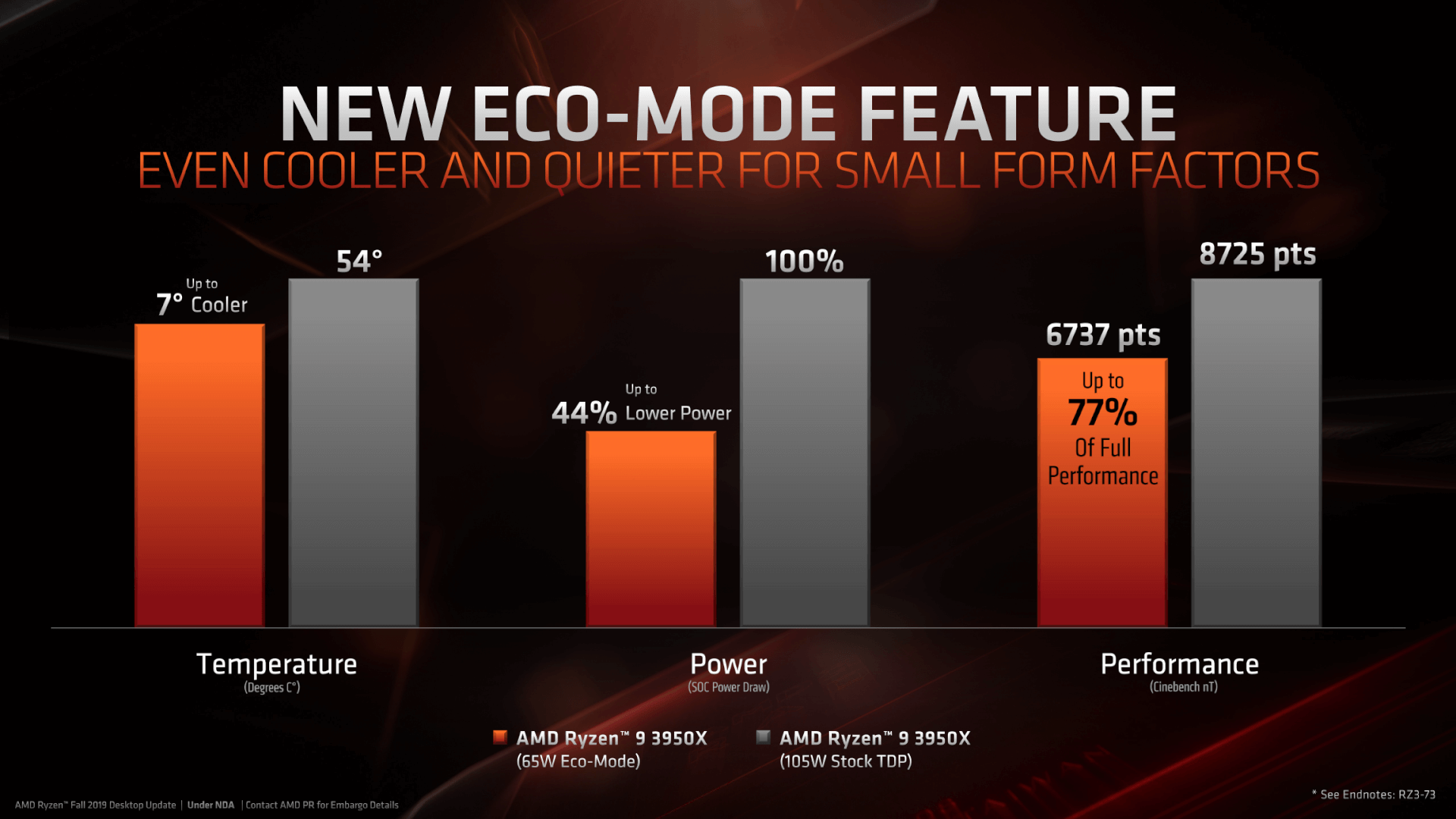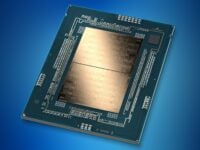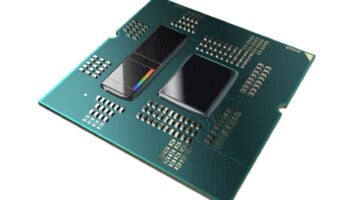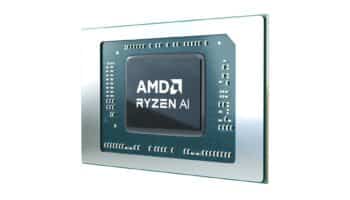AMD’s Ryzen 3000 chips are not only the most powerful CPUs on the block, but they’re also the most efficient. Where the Intel Core i9-9900K draws as much as 250W under heavy load, the Ryzen 9 3900X usually doesn’t cross the 130W mark despite having a higher core count. This is thanks to TSMC’s cutting edge 7nm node which happens to be twice as efficient compared to Intel’s 14nm based Coffee Lake chips.
Team Red launched something called Eco mode along with the Ryzen 9 3950X. This low power mode offers up to 70% while drawing 40% less power, at least in the case of the Matisse flagship. It is however available for the entire Ryzen 3000 lineup. In this post, we test Eco mode on the Ryzen 7 3700X and 3900X and see how much the performance and power draw are affected across various workloads.
Test Bed
- CPU: AMD Ryzen 7 3700X/ Ryzen 9 3900X
- GPU: NVIDIA GeForce RTX 2080/ RTX 2080 Super
- Memory: Trident Z Royal 8GB x 2 @ 3600MHz
- PSU: Corsair HX1000i
Eco Mode: Gaming Performance
We’ll start with a few gaming benchmarks, namely DX12 based titles such as Shadow of the Tomb Raider, The Division 2, and Deus Ex: Mankind Divided. All the games were run at 1080p ultra to minimize the GPU bottleneck. First. we’ll test the Ryzen 7 3700X and then the 3900X. The former was paired with the RTX 2080 and the latter with the 2080 Super:



It appears that Eco mode has almost no impact on gaming performance. In fact, certain titles like Deus Ex and The Division 2, Eco Mode offer identical frame rates upon enabling Eco mode on the 3700X. It would seem that the main cores are more or less unaffected, but the seventh and eight-core scale down.
Let’s have a look at the gaming performance of the Ryzen 9 3900X using Eco mode. Since this part has two CCDs, it might show a more pronounced impact, so we’ll be checking the 0.1% lows as well:


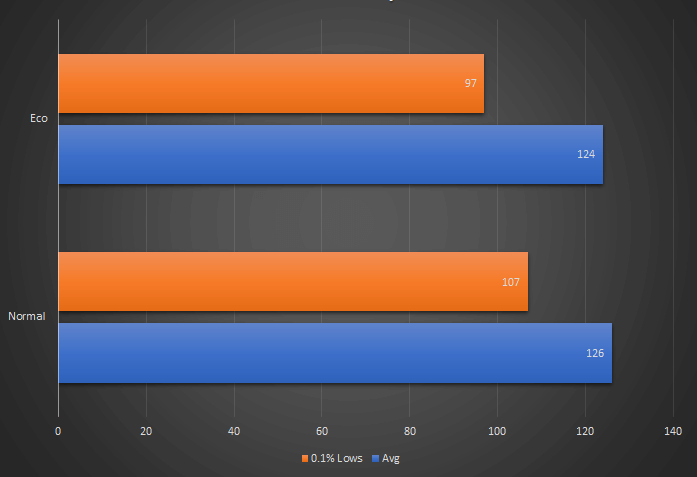
The same result again, there’s no change. The Division 2 shows a very slight variation but this is within the margin of error to really call it a concrete result. Conclusion: Eco mode has no impact on gaming performance.
Eco Mode in Rendering and CC
For content creation, we’ll be testing Cinebench 20 as it scales really well with AMD’s processors, showing near-perfect utilization.

When Eco Mode is turned on, Cinebench R20 shows a small drop in performance of about 200 points. Keep in mind that this is the multi-threaded test so all the threads are utilized. Basically, when Eco mode is turned on, the clocks scale down across all eight cores. The resulting power drop is discussed in the next section. Now for the Ryzen 9 3900X:

In Cinebench R20, the 3900X experiences the same drop in performance ~5, however, the clocks are more drastically affected.
AMD Ryzen 7 3700X Power Consumption and Clock Speeds: Eco Mode vs Normal


Eco mode essentially scales down the boost clock by 100-150MHz and then makes up for it by dropping the TDP by ~10W. Although this has little to no impact on gaming performance, more CPU intensive applications like Cinebench observe a slight loss in performance. Now, let’s analyze the power and clock scaling on the 3900X:

Under normal conditions, the fastest cores from each CCX start off at 4.4GHz but as the benchmark drags on, they aren’t able to maintain it. By the end, the average core clock drops to 3950MHz, all the way from 4100MHz. There seems to be a thermal limitation as you’ll see shortly.

In Eco mode, most of the cores start off at 4.4GHz but then quickly run into a hard power ceiling. The result: All the cores are restricted under 3900MHz for the rest of the benchmark. The 3900X shows a much stronger frequency drop compared to the 3700X. I expect the effect will be even more prominent on the 3950X. Now, let’s check the thermals and power draw:


Eco mode brings down the temperature of the 3900X by a whole 10 degrees. The power consumption also falls by almost 20W. In comparison, the 3700X saw a drop of just 10W. It seems that Eco mode does in fact have a stronger effect on the top-end Matisse parts.
